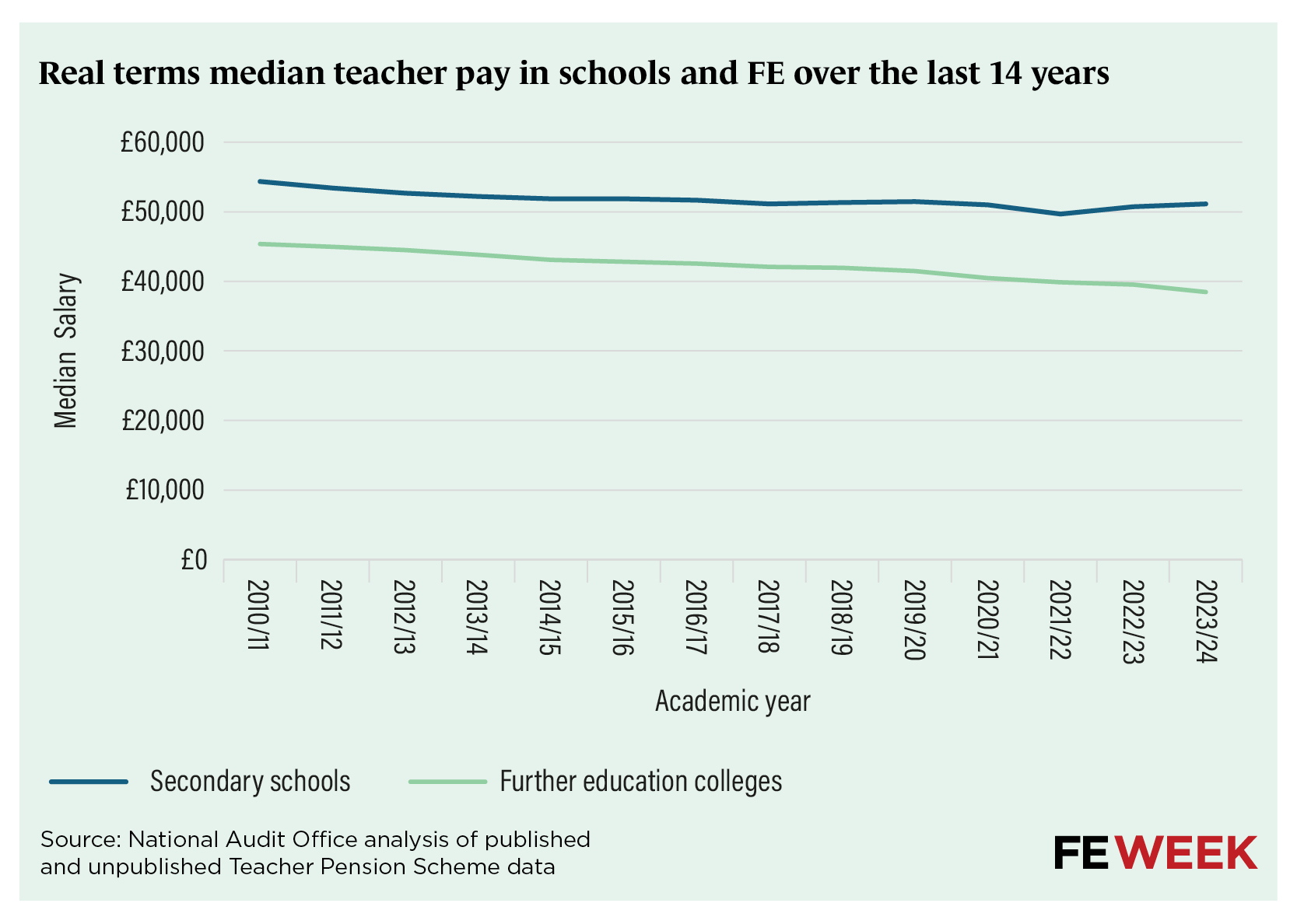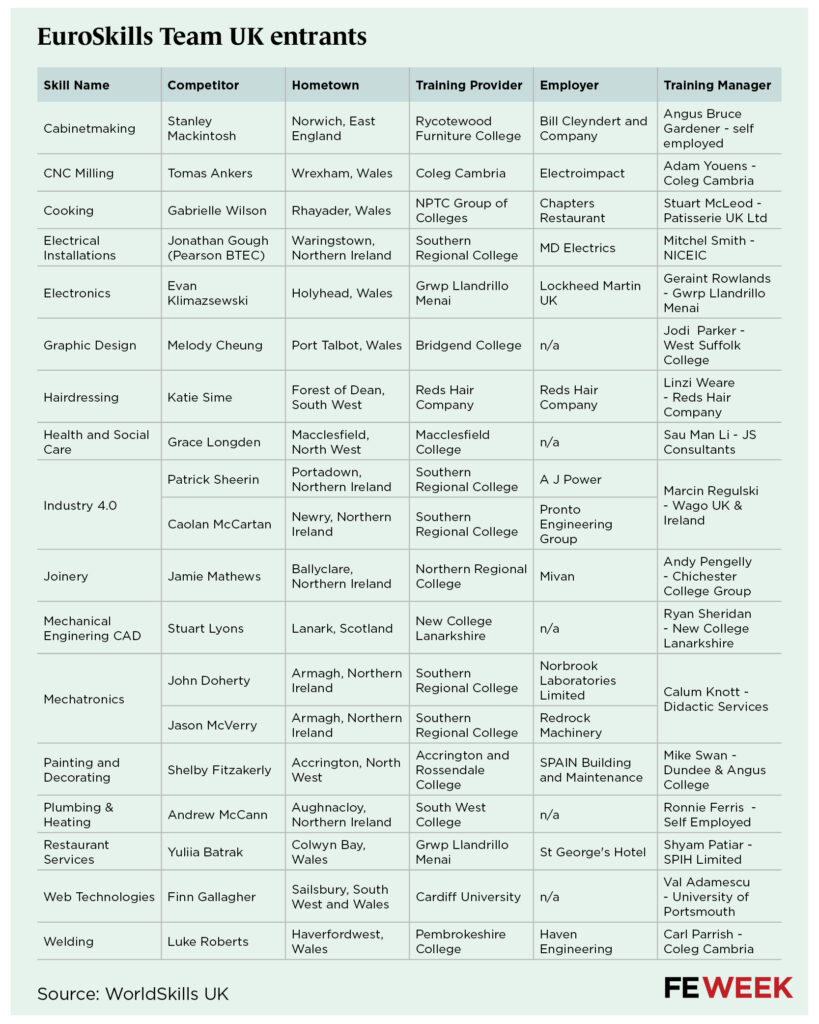The former chair of Weston College has admitted £2.5 million in hidden payments handed to former principal Sir Paul Phillips was an inappropriate use of public funds – but claimed he was powerless to stop them.
Andrew Leighton-Price (pictured), who stood down from the governing body last year following the launch of a government investigation, spoke exclusively to FE Week about the scandal that was exposed during the Easter break.
Earlier this month, FE Commissioner Shelagh Legrave’s report revealed serious “governance failures” at the seaside college, with £2.5 million of undeclared payments made to its then principal Sir Paul Phillips between 2017 and 2023.
But Leighton-Price refuted the FEC’s claim that governors “concealed” payments, and instead blamed college auditors and expressed a fear that Phillips would sue if he did not get what he was contractually due.
Leighton-Price joined the Weston College board in 2015 and became chair in 2019. He stepped aside in May 2024 when the FE Commissioner’s intervention began. He then officially stood down in October, claiming his eight-year term limit was up.
Presidential role
The Department for Education deployed fraud investigators to probe “funding irregularities” after an FE Week investigation in 2023 revealed Phillips would get a paid “presidential” role following his retirement.
The following month, Legrave and her team interviewed the former principal, ex-governors, former clerks to the corporation, and internal and external auditors.
The long-awaited report exposed board failures to ensure the college demonstrated value for money and accountability of public funds.
Phillips was secretly paid £2.5 million more than was officially declared between 2017 and 2023 through a combination of bonuses, allowances and benefits, including a £909,000 retention payment.
Corrected college financial statements, published on the same day as the FEC report, revealed Phillips was paid a staggering £1,898,000 when he retired in 2023.
The report said the “majority” of these previously undeclared payments were not approved by the full board of governors.
Instead, the college had a “small group of trusted governors” in a remuneration committee who made decisions on Phillips’ pay. These decisions were not reported to the full board.
Leighton-Price said he did not recognise the £2.5 million figure but admitted Phillips’ payments were an “awful lot of money”.
Now he’s no longer a member of the college board, he admitted he’d “probably say no”, the payments were not an appropriate or good use of public funds.
“My opinion didn’t really come into it if I’m honest. It was a legal agreement. We were given the figures by the auditors,” he said.
Phillips’ total earnings for 2022 were £837,000, up from an originally stated £362,000. This was due to a £90,000 increase in his basic salary and a £372,000 performance bonus. Leighton-Price could not explain the rise in Phillips’ basic salary.
He refuted that the payments were hidden from public disclosure or from auditors, as claimed by the FEC.
“The auditors were told everything that was in there,” he said.
“The board is given a set of accounts by the auditors, and they work with the finance department. They don’t work with governors, and we don’t make the accounts up.”
Leighton-Price added that governors would see the college accounts for “probably” an hour for discussion before they were approved.
“As chair of the board, I was fulfilling a legal agreement,” he said. So, was I culpable in that area? Yes.”
‘Easy to blame governors’
The FEC placed Tim Jackson as interim chair in May 2024.
Leighton-Price said he stepped aside as “protocol”. His subsequent cooperation with the investigation comprised a 30-minute interview with Legrave, during which he was asked about minutiae from board meetings from years prior. He added it would have been easier to provide information if he had been given “a little bit of warning”.
Did he think Legrave’s report was fair?
“How can I put this politely… Yes,” he said.
“My impression was that, following my half-hour interview with Shelagh, it was always going to be the governors that were going to bear the brunt of it.”
He was shocked by “most” of her findings and claimed that governors were “all being put down to try and ram home the point that governance was not good at Weston College”.
He claimed it was “very easy” to blame things on governors, and added: “There is really not a lot of safety for governors in these areas.
“Governance is such a tricky thing, you’re held to account and yet you don’t work there. You rely heavily on the information you’re given, and that’s all you can go on.
“I think governance probably hasn’t kept up with the demands of the modern FE college, if I’m honest.”
‘We had no other option’
Regarding the £909,000 retention payment, governors “had no other option other than to pay or be sued by Sir Paul Phillips,” the former chair told FE Week.
The report said the board of governors signed a retention agreement in 2011, which allowed for an “annual accrual” of retention value for Phillips to keep him in post. Phillips served as principal of Weston College for 22 years.
Phillips confirmed to BBC News that undeclared payments were “contractually due” and the retention scheme was needed because, “during my extensive tenure at the college, approaches from other organisations occurred and therefore the college introduced a retention scheme to retain me”.
Leighton-Price said he became aware of the retention package around “six years ago” when he became chair, and it was brought up in an audit committee.
“We did push back at the time when we initially found out about it, but it was pointed out to us, it was a legal agreement, and there was an element of course that Paul would not fulfil the requirements within the agreement,” he said.
In November 2022, Phillips was finally paid the £909,000 as a severance payment.
But it came with some strain. Phillips’ son Joe resisted paying the retention payment to his father in his capacity as Weston College’s chief operating officer, and supported his finance team in their refusal, according to evidence investigators found in the remuneration committee minutes.
Instead, the payment was initially made by the governors “under the authority of the remuneration committee”.
On at least one occasion, the previous clerk to the board processed additional payments outside Phillips’ monthly salary “under the authority of the remuneration committee” because the finance team would not do it.
Leighton-Price claimed the board sought advice from the college’s auditors – though he could not confidently determine the identity of the firm – to make direct payments to Phillips after the chief operating officer refused.
Phillips received “a variety” of bonus payments which were presented to committee members as percentages rather than raw values, compounding the “lack of clarity”, the FEC said.
“Some members of the committee expressed surprise at the actual sums of money paid to the previous principal, despite being party to decisions on remuneration of the senior post-holder,” the report said.
When asked if Phillips deserved such a high payout, Leighton-Price said he was surprised at the cash value, but admitted he was aware of his total pay package as it had been presented by auditors.
“On one hand, you look at it, it was a successful college,” he said. “It’s gone from nothing to where it was. I can see why the original governors wanted to retain him. Personally, if it was me at that time, I probably wouldn’t have put in a retention payment.”
Leighton-Price said with hindsight, the retention package should have been run past officials at the Department for Education.
‘Money in his back pocket’
The FEC report caused a huge backlash amongst leaders and representatives in the sector.
Reacting to the negative public reaction, Leighton-Price said it was “very easy” to target Sir Paul, “whether he deserves some of it or not”.
“That’s up to those individuals who made those claims,” he said. “People always have a grievance against the leader of an organisation.”
In a post on LinkedIn, principal and CEO of Blackpool and the Fylde College Alun Francis labelled the episode “the worst example of unscrupulousness I have seen”.
He added: “When the college could have afforded a better pay rise, a small group of governors bizarrely thought it OK to stick it in the CEO’s back pocket – and even more bizarrely he thought it OK to take it.”
Weston College remains in intervention amid a separate DfE investigation into other undisclosed issues around financial controls.
Paul Phillips and the college’s former auditors were contacted for comment.




